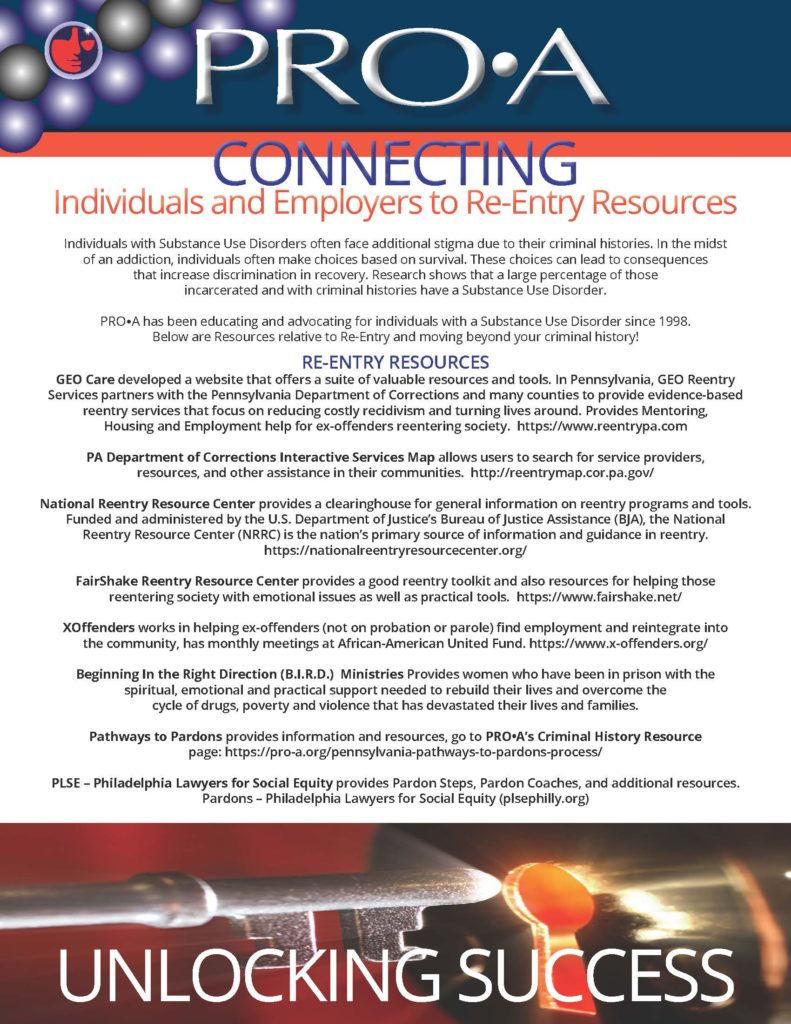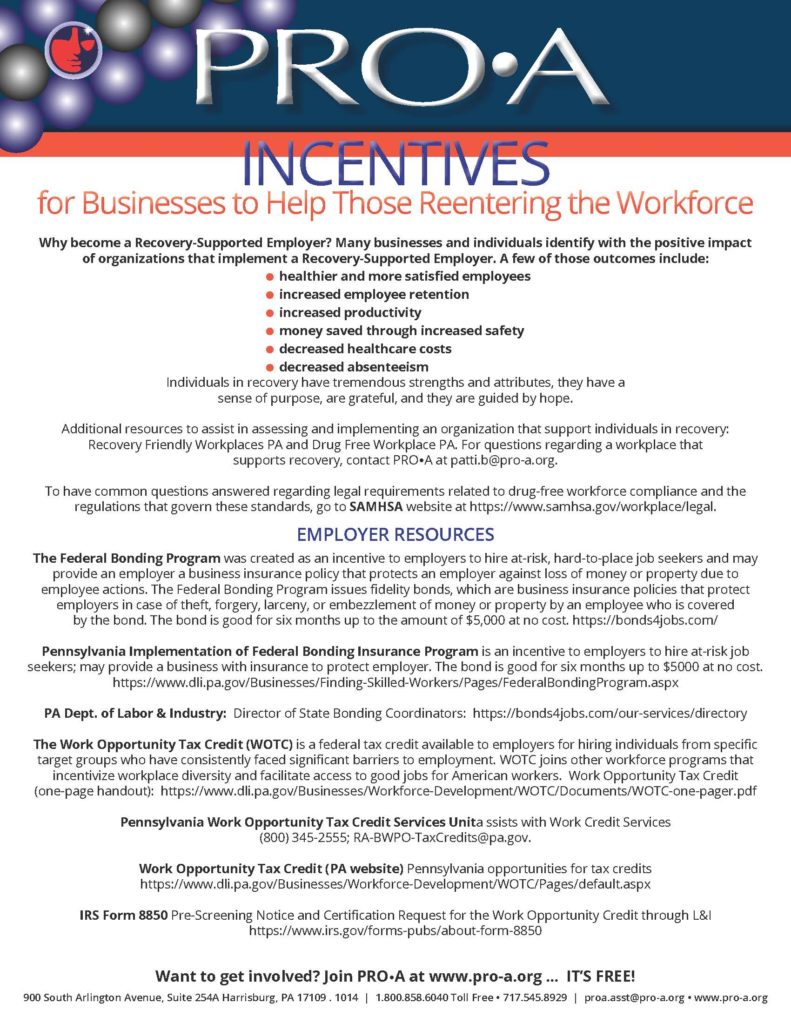Employment Resources
We envision a network of employers that provide employment opportunities for members of our community and opportunities for peer Employment and self-sufficiency are fundamental to healthy recovery and functional communities.
Employment Resources
Although there are many social, employment, legal, educational and other important issues with the person with a SUD, there are a couple of exceptionally important areas. Employment, education and self-sufficiency are fundamental to healthy recovery and functional communities. We must reduce and eliminate barriers to employment for persons in recovery and recognize that persons with lived recovery experience are assets in our communities. We envision a network of employers that provide employment opportunities for members of our community and opportunities for peer Employment and self-sufficiency are fundamental to healthy recovery and functional communities. We must expand college and trade educational opportunities while reducing and eliminating barriers to employment for persons in recovery. There must be simple processes for persons to clear their records from past criminal charges as they reach stable, recovery.
Seeking Employment Positions:
- Civil Service Jobs – https://www.governmentjobs.com/careers/pabureau
- Online Search Engines
- Online Job sites (i.e. https://www.indeed.com/)
- The Pennsylvania Certification Board – https://www.pacertboard.org/employment_opportunities
- Retrofit Careers – https://www.retrofitcareers.com/ (This site is for individuals in recovery and employers willing to hire people in recovery)
Facts About Recovery in the Workplace:
We make great employees! We are more likely to show up and stay dedicated to our employers. Workers in recovery, and workers who report receiving substance use treatment at some time in the past and who have not had a SUD within the last 12 months, miss the fewest days of any group. They are less likely than even the general workforce to miss work-days (9.5 days for workers in recovery and 10.5 days for other workers). Workers in recovery are the group least likely to leave their employers. Their turnover rate is much lower than workers with untreated substance use, and even lower than their peers with no SUD (21% vs 25%).
Learn more at https://www.ncbi.nlm.nih.gov/pmc/articles/PMC5671784/?fbclid=IwAR2_VKXUgZHGrWRJwnYgpH4hTcOxuX6nPvl-eJf0HgUjQ4LCij-qg_j5UhI#!po=0.694444.
The Basics – Personalized Cover Letter, Resume, & Interviewing Techniques:
Many communities have Recovery Community Organizations, non-profit agencies, CareerLink offices, and OVR Offices with programs designed to aid with creating a personalized cover letter, building a resume, and practicing interviewing techniques. Helpful tips include:
Write a letter that applies to the work environment.
- A cover letter is not a one size fits all. Skills required for office work and the environment in an office differs from the skills and work environment in a warehouse or distribution center, and these types of positions differ from call center and food industry settings.
- Your cover letter is a summary of who you are, your experience and strengths, and why you will be a good fit for the position.
- Look at the environment and the skills required for the position. Integrate your experience in working in this environment and your experience using these skills into your cover letter.
- Spell check and carefully review your cover letter for errors that may not register in a spell check program (i.e. an instead of and)
Provide a grammatically correct resume in an easy to read font.
- Provide up-to-date contact information. If you will be providing an email address, be sure that is it a semi-professional email address.
- Spell check and carefully review your resume for errors that may not register in a spell check program (i.e. an instead of and)
- Use an easy to read professional format, such as times new roman 12 font, in a single space format.
Practice interviewing techniques
- Research the company prior to your interview. When you know some basic facts about the company, and are prepared to answer questions about the company, it looks good, shows initiative, and reflects that you are invested.
- Make good eye contact and a firm handshake.
- Never bad-mouth a former employer; it reflects poorly on you, not the employer.
- Be prepared to answer questions about gaps in employment.
- Thank the interviewer for their time and consideration.
Volunteering:
Volunteering is a largely underutilized component to gaining employment. Volunteering helps to develop soft skills, expands your network, can broaden your knowledge of available resources in your community and helps to connect you with like-minded, service-orientated people. Volunteering can also be listed on your resume.


